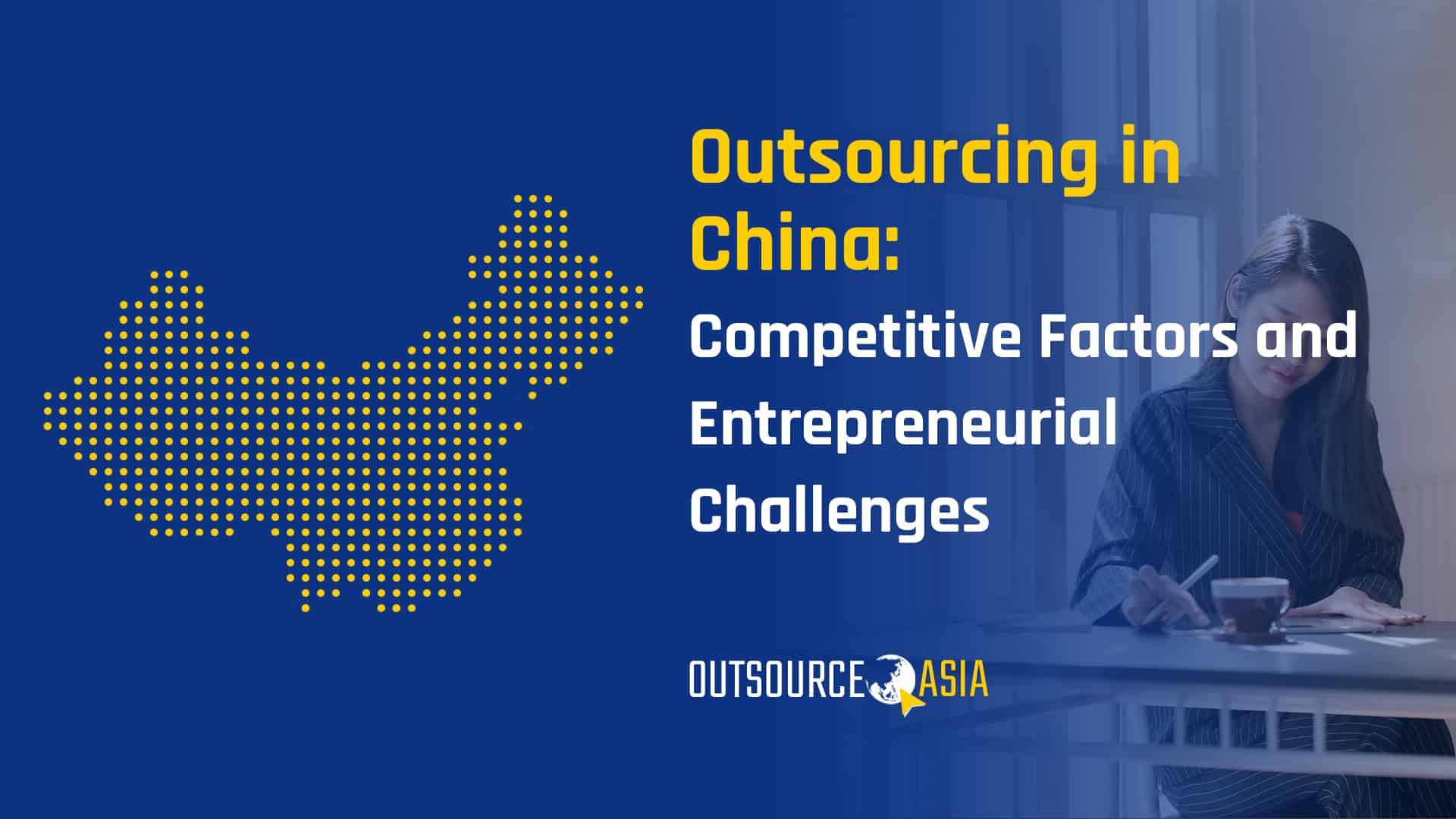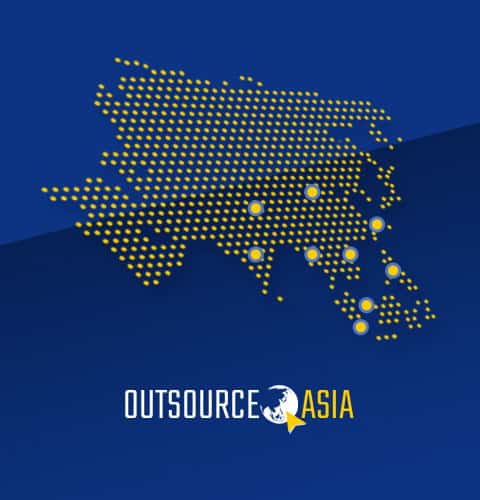
The global outsourcing market has grown into an almost trillion-dollar business with millions of freelance professionals and virtual teams involved in providing business services across the globe. Outsourcing service providers in China are racing to improve quality and output delivery to gain an edge over competitors from the same region and across the globe.
The Chinese outsourcing market is categorized into three sub-sectors: business process outsourcing (BPO), information technology outsourcing (ITO), and knowledge process outsourcing (KPO). In 2019, at least 10 million outsourcing professionals contributed to its $200 billion worth of outsourcing income – an 18% revenue increase from the previous year according to the Ministry of Commerce (MOC).
Strong government support is a significant driver behind the more than US$256 billion worth of purchases of technology goods and services. Growth and development of China’s IT industry is generally attributed to the application of technologies such as Cloud Computing, IoT, AI, and Big Data. It is also home to nine of the twenty largest tech companies worldwide.
There are learning packages and sector-specific training programs available for students and individuals looking to improve their skills and expertise in various fields that have close ties to the outsourcing industry.
Its claim of having the world’s largest ‘middle income group’ – between 100 million and 400 million people – has created consumer demand from various types of businesses and is driving foreign investors to enter into outsourcing partnerships with local firms.
This has positioned China as a strong outsourcing player with export-driven credentials like India. It has already maintained strong business ties in domestic markets in South Korea and Japan. Additionally, China it wants to continue to strengthen its position as a reputable service provider for all of its local service industries.
With a nominal GDP of $14 trillion, China is just $8 trillion short from being the leading economic superpower – a position the U.S. has held since the latter part of the 19th century. But based on the purchasing power parity (PPP), China ranks at the top with almost $25 trillion PPP while the U.S. trails closely behind with at least $19 trillion PPP. Two thirds of China’s GDP are owed to the private sector – producing up to 90% of its exports, which makes China the world’s primary supplier of merchandise goods to countries across the globe.
With over a billion potential consumers, it is easy to see why foreign investors would commit capital to higher-end industries like engineering information technology, luxury goods, and even healthcare. Setting up shop in China guarantees immediate and long-term profits just by gauging the sheer size of its population. The Chinese middle-income consumers are increasingly prioritizing happiness and a balanced life which drives spending on premium lifestyle services and experiences. Furthermore, it allows companies to expand their user base or to tap into upcoming markets using proven targeted demographics which will lead to easier penetration of the US or European markets later on.
China’s economic innovation is one of its outsourcing advantages over other countries in Asia. Ranking among the top 20 innovative economies according to the Global Innovation Index 2019, this can be attributed to substantial investments made in research and development (R&D) and technological imports, among other factors. Currently, there are 15 Chinese metropolitan areas categorized as ‘first-tier- cities’ based on commercial resources, livability, transportation convenience, and proliferation of economic development zones.
Regardless of product or service type, labor is always considered a major business expense. Outsourcing in China, where there are plenty of companies offering dirt-cheap Chinese labor, can lead to a dramatic change in profitability revenue growth. Manufacturing facilities here are known for high volume product delivery at bargain labor cost – something that cannot be replicated by many local factories based in the US or in Europe. This is one of the most common reasons why outsourcing clients are putting up with the risks of dealing with Chinese service providers.
Although the Chinese government has long kept a tight rein on local businesses, officials are now realizing the benefits that outsourcing can offer. Restrictions on foreign ownership especially in major parts of the financial sector are now removed – a strategic move to globalize its market and be positioned as a top global player. Favorable tax policies have been implemented while other financial support and subsidies are also being offered to attract offshore investors to establish and maintain working relationships with local outsourcing service providers.
Despite China’s big strides in economic development including its manufacturing competence and massive IT infrastructure development, being dubbed ‘factory of the world’ is something that does not conjure happy thoughts. It has ranked among the top ten worst places for workers for many reasons. Rural and urban workers are forced to endure the horrifying conditions in sweatshops; child labor has been going on for decades and seems to be an easy option for factories, especially during periods of high production demand; lost fingers, 18-hour work shifts, and other forms of worker abuse are the norm – even Apple recently admitted to breaking Chinese workers’ laws. The abundance of labor violations and labor disputes/complaints as well as clear disregard for following basic guidelines for wage laws is a serious ethical consideration that companies should not ignore before deciding to outsource in China.
China’s history of making products with toxic parts or producing contaminated food items while its service industry couldn’t be bothered with its one-star customer service reputation for many decades. Over 40% of its online goods are either fake or of bad quality; even its own government is at wits’ end trying to crack down e-commerce platforms involved in consumer fraud or misleading advertising. Unsurprisingly, its enormous counterfeit industry has popularized mainland China as the world’s largest producer of fake goods.
China cited various reasons for this. First, it says there is difference in cultural attitude towards what is considered as high-quality product in the Chinese manufacturing industry versus what is acceptable in the U.S. or in Europe. Second, it can manufacture first-class products but will also deliver substandard goods depending on client’s willingness to spend more or not on better materials and quality control. Third, Chinese suppliers protest against foreign importers who say they’re being scammed into getting defective products or goods with inconsistent quality. Chinese manufacturers reasoned that failing to communicate things exactly to specifications and just wanting to push costs down too far are at the heart of the issue.
China has ambitious plans to pattern its data privacy law after Europe’s GDPR but as of yet has no comprehensive law addressing data privacy protection.
Some of the most worrisome cyber-crimes committed due to lack of enforceable data privacy law include easy access of account information of more than 500 million users of the digital media platform Weibo for just $250; the database hacking of some of China’s biggest financial institutions; unlimited access and tracking of Chinese citizens’ private information by the local police force; and, information leaked of thousands of Chinese schoolchildren using facial-recognition database.
Organized virtual syndicates are also expanding and getting more dangerous – a whopping $15 billion industry that employs 400,000 hackers. Social media app WeChat is considered one of the top favorites among those involved in identity theft and other online fraud. Since 2006, China has been known for being the world’s major source of cyberespionage and cyberspace attacks.
Chinese cybercriminals are notorious for a variety of online attacks such as the data leak of 500 million Marriott-owned hotels customers; the Equifax data breach where personal data of almost 150 million Americans were stolen; the Anthem data breach where more than 35 million medical records of patients were compromised; the online theft of highly sensitive personal data of ANU (Australian National University) students.
Foreign firms are worried about the ambiguities of the current data privacy regulatory framework. It raises the question of whether offshore investors will be given a level playing field and not worry about things such as stolen IP for new products and commercial secrets. Many Chinese citizens doubt their own government can be trusted with anything they post or submit online. And the voracious appetite of Chinese hackers for amassing online records of both its citizens and everyone else around the world is not going away soon, inhibiting growth of international trades and investments.
China offers competitive outsourcing advantages, but at a cost. Consider your company’s specific needs and requirements before entering into an agreement with an outsourcing service provider in the country. If you need more information on finding the right outsourcing partner for your business, read more here.
